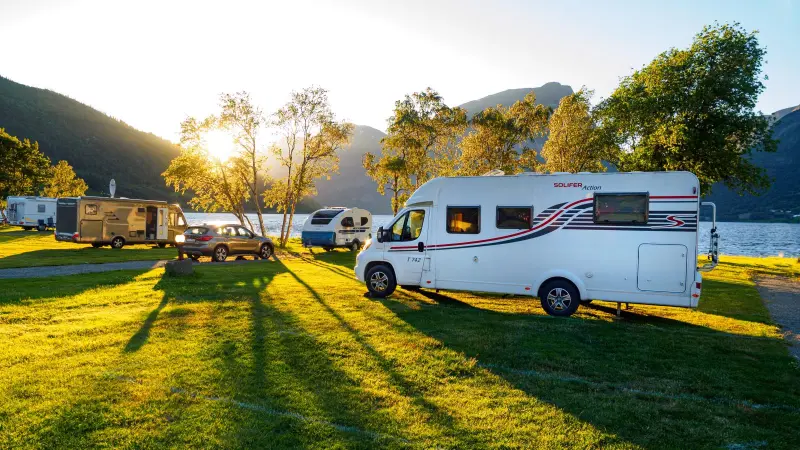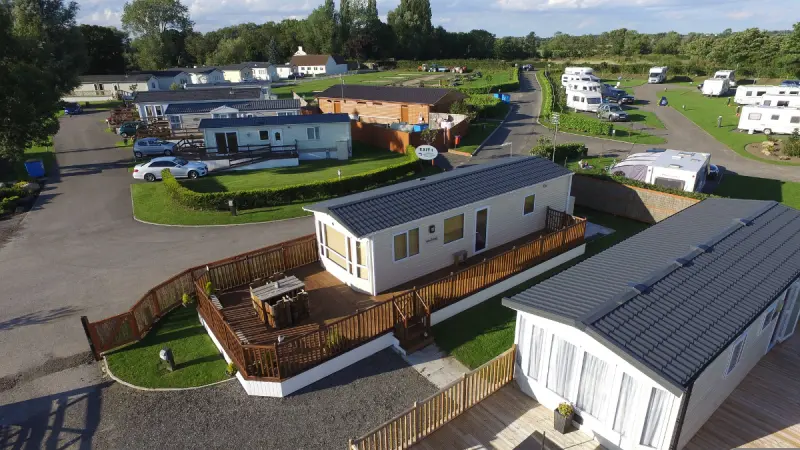Find out where a mobile home can be legally sited with our comprehensive guide. Explore the legal requirements and restrictions for siting a mobile home, whether on private land, caravan parks, or residential sites. Learn about planning permissions, zoning regulations, and the best locations for placing your mobile home legally and safely.
Do you need a site licence for a mobile home park?
Yes, you do need a site licence to operate a mobile home park in the UK legally. This licence is required to ensure that the mobile homes and parks meet specific standards set by law. But, obtaining a licence isn't as simple as filling out a form.
You must apply to your local authority, which will inspect the site to make sure it complies with all regulations. These inspections assess important factors like water supply, waste disposal, safety measures, and living conditions. If your site is up to standard, the local authority will grant you a site licence.
Remember, occupying land with mobile homes without a site licence is illegal and can result in being forced to shut down the park. Even if you own the land, you can't set up a mobile home park without the proper permissions and licence. So, always make sure you get the required approvals before planning to start your mobile home park.
Caravan site rules & regulations
The rules and regulations about caravan sites are outlined in the Caravan Sites and Control of Development Act 1960. To begin, the use of land as a caravan site without a site licence is strictly prohibited.
Even if you own the land, you cannot place caravans or mobile homes on it without first obtaining the necessary licences from your local authority. Yet, there are exemptions to this rule.
For example, land owned by certain organisations like scout clubs may be exempt from needing a site licence. Temporary sites are also used for specific purposes, like fairs, and might not need a licence for up to 28 days in a year.

Local authorities are responsible for issuing caravan site licences. They will inspect the site to ensure it meets the required standards before issuing the licence. The duration of these licences can vary, and they may be issued for a specific term or indefinitely. This will ultimately depend on the conditions set by the local authority. Local authorities also have the power to attach conditions to site licences.
These conditions might include specific requirements about the size and layout of the park, the spacing of caravans, the provision of essential services like water and electricity, and waste disposal. The aim is to ensure that the site is safe and suitable for human habitation. Non-compliance with these regulations can result in fines or legal actions. So, it is crucial to understand and adhere to the caravan site rules and regulations to avoid potential problems.
How are mobile home sites regulated?
Mobile home sites in the UK are regulated by several legal frameworks to ensure safety and fairness. The primary laws include the Caravan Sites and Control of Development Act 1960 and the Caravan Sites Act 1968. These acts provide a complete set of rules that mobile home parks must follow. One key regulation is the need for a site licence. This licence ensures that the mobile home site meets all necessary standards for living conditions, health, and safety. Regular inspections by local authorities ensure continued compliance with these standards.
Local councils also have the authority to impose specific conditions on site licences. These can cover a wide range of issues, such as the layout of the site, spacing between units, and provisions for waste disposal and water supply. Deviating from these conditions can lead to the council taking enforcement actions. Actions may involve fines or revoking your licence. Town and country planning laws, under the Country Planning Act 1990, also apply. This means that even with a site licence, you might still need to apply for planning permission to make significant changes to the site.
What rights do mobile home residents have?
Mobile home residents have a range of rights to ensure their living conditions are fair and safe. Firstly, they have the right to live on a site that meets health and safety standards as established by local authorities.
These standards cover essential aspects such as water supply, waste disposal, and general living conditions. Residents also have the right to know the terms of their agreement with the site owner.
This includes information about rent, services provided, and any rules or regulations that apply to the site.
Transparency in these terms helps residents understand what they can expect and what is expected of them. Under the Mobile Homes Act 1983, residents also have protection against eviction.

They cannot be forced to leave their mobile home without a court order, and only under specific circumstances, such as non-payment of rent or breach of site rules.
Moreover, residents have the right to form residents' associations. These associations can negotiate with site owners on behalf of members to address common issues and concerns. To protect their rights, residents should always seek information and legal advice if they are unsure about any aspect of their agreement or living conditions. They can also contact local authorities for further help and support.
What are the benefits of owning a mobile home?
Owning a mobile home comes with several advantages that can make it an attractive option for many people. One of the primary benefits is affordability. Compared to conventional houses, mobile homes are generally more affordable to buy and maintain, making homeownership achievable for a broader range of people. Mobile homes also provide flexibility in living arrangements. They can be sited in various locations, including designated mobile home parks and private land (with the required permissions).
This flexibility allows owners to choose a location that suits their lifestyle, whether it’s near the countryside or closer to urban areas. Living in a mobile home can offer a sense of community. Many mobile home parks encourage close-knit environments where neighbours know each other, and social activities are common. This sense of community can provide a supportive and enjoyable living experience.
Additionally, mobile homes are designed to maximise space efficiently. Modern mobile homes often come with features that enhance comfort and convenience. For example, they have energy-efficient systems, plenty of storage, and contemporary designs. Another benefit is the low maintenance cost.
Mobile homes typically have lower utility bills and upkeep expenses compared to traditional homes. This aspect can add to long-term savings and make managing household finances easier. Owning a mobile home allows for a simplified lifestyle.
With less space to manage, owners can focus on what matters to them, such as enjoying their surroundings and spending time on hobbies and activities they love. In conclusion, owning a mobile home offers affordability, flexibility, a sense of community, efficient design, low maintenance costs, and a simplified lifestyle.
These benefits can make it a great option for those looking to own their property. You can do so without the high costs and responsibilities associated with traditional houses.
Are you looking for mobile home siting services in Devon, Cornwall and South West England? If you require mobile home siting and transport, get in contact with our professional team.

